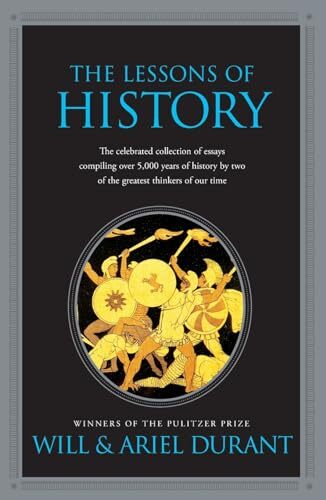
The Lessons of History summarizes some of the key lessons from the author’s 11-volume (!) series The Story of Civilization, which covers western history from ancient Egypt up to the era of Napoleon. I have not read The Story of Civilization, so when I read The Lessons of History, I was taken aback by the author’s massive, sweeping claims and generalizations about humanity. He makes these bold claims, but doesn’t take much time to offer evidence or examples to back them up. I guess this is because he assumes the evidence you need is in those other 11 volumes, but if you haven’t read them, the content of this book by itself probably isn’t going to be enough to convince you.
Some of the claims seem reasonable, such as:
-
Civilization forms along trade routes. The type of trade we can do depends on the technology available. That’s why the first civilizations all formed along rivers; as we developed seafaring technologies, later civilizations formed around the Mediterranean (“like frogs around a pond”); as technology developed enough to cross oceans, England, with its high quantity of accessible coastline began to dominate; and these days, as trade happens more and more via airplanes, countries with large land mass and few contested borders, such as the USA, will dominate.
-
Morals adapt to conditions. What is a vice today may have been a virtue yesterday. For example, in the past, being efficient at killing (e.g., for hunting) and stuffing your face whenever food happened to be available was a virtue; today, when food is more plentiful, these are both seen as vices.
-
All civilizations are ruled by minorities. Sometimes, it’s a monarchy or sometimes an oligarchy, but always it’s a minority. The majority can never rule; the majority can only throw out one minority in favor of another.
Other claims seem a bit absurd. For example, Durant spends a lot of time praising religion, deriding modern art, and arguing that parenting should be a privilege and not a right. Are these really lessons from history or just the personal morals and beliefs of a single man?
Overall, it’s an interesting attempt by a historian who has studied a huge swath of human history to identify the common patterns. The Hero with a Thousand Faces showed us the common pattern in many of our hero myths; I guess this book is trying to do the same for human history. Perhaps if you read those other 11 volumes first, this book will succeed; but if you haven’t, it just seems like an old guy ranting as if he knows everything.
